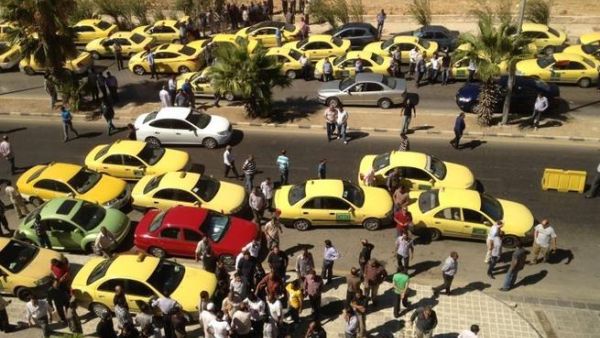With about 150 taxis queuing up daily to adjust their meters to the new tariff, some Amman residents said it was taking them longer to find cabs.
Commuters interviewed by The Jordan Times on Sunday said they were arriving late at work because they were unable to find taxis right away, while others said they resorted to sharing a cab with other passengers.
Ghada Omar, who lives in Jabal Taj and works as a teacher in the Wihdat area, said it was difficult for her to find a taxi over the past few days.
"I usually wake up at 6:30am and get to school on time, but recently I started waking up at 6:00am so I that have enough time to find a taxi and not be late for class," Omar told The Jordan Times over the phone.
An average of 150 taxis report to facilities affiliated with the Jordan Institution for Standards and Metrology every day to adjust their meters to the new tariff, according to the Transport Services and Taxi Owners Union.
Earlier this month, the government decided to increase fares of gasoline-run public transport vehicles across the country by 9 per cent.
"It is true that there are fewer taxis operating in Amman, but the process of adjusting the meter is fast. It takes about 15 minutes only," Ahmad Abu Haidar, the union president, told The Jordan Times.
"However, due to the long queues at these facilities where the meters are adjusted, taxi drivers have to wait for two or three hours until it is their turn," Abu Haidar said.
"Most of the taxis get a number for their turn in the queue, leave for two or three hours to work and then come back to adjust their meters. Some prefer to wait in the queue instead of cruising for passengers," he added.
More than 1,000 taxis have adjusted their meters so far since the adoption of the new tariff on November 18, according to Abu Haidar.
Under the new tariff, taxis are charging 23 fils for each 100 metres and 33 fils during the night; the starting rate will remain the same at 250 fils, he said.
Before the decision took effect, Amman taxis used to charge 250 fils as a starting rate and 19 fils for each 100 metres during the daytime, while from 10:00pm to 5:00am, fares used to start at 300 fils and then 26 fils for each 100 metres.
Wasfi Shaalan, who works as a secretary in the capital's Shmeisani neighbourhood, said it is difficult for him to find a taxi when he leaves work at around 4:00pm and needs to go to his home in Marka.
"Shmeisani is a very crowded area, it takes me 30 minutes or an hour to find a cab. Sometimes I share a taxi with other passengers who are going to another destination, but I prefer to take the taxi even if it wants to drop other passengers on the way rather than wait in the street," he said.
There are about 17,000 taxis in Jordan, 12,000 of which are in the capital, according to Abu Haidar.
"There are several facilities in Amman and across the country where taxis can go to adjust their meters. These facilities can handle about 150 taxis per day," he added.
Munther Salim, a taxi driver who works in Amman, said he still hasn't adjusted his meter.
"I went to a facility in Tabarbour last week, but the queue was too long, so I decided to do it later," Salim said on Sunday.
"I am not in a hurry. I can adjust the meter when there are fewer taxis in the queue. For the time being, I charge about 250 fils on each JD1 on the meter and explain to passengers why.”
Have you felt the effects of Amman's taxi drought? Leave us your comments below!








